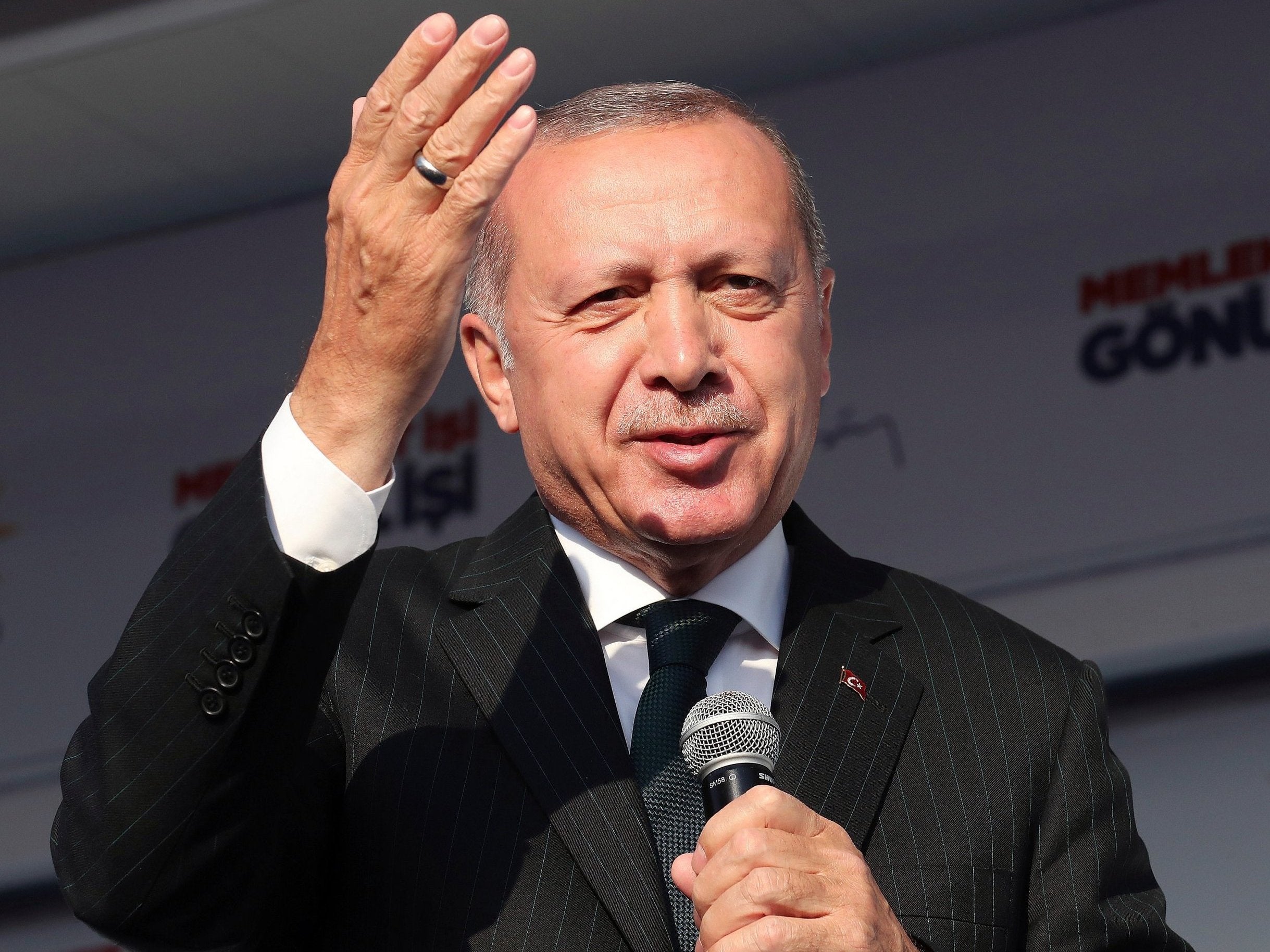Women continue to die from domestic violence while Turkey debates ditching the Istanbul Convention
President Erdogan underscored his party’s commitment to end violence against women, says Sebnem Arsu, but he remains ambiguous about whether it would withdraw from the convention ratified by parliament


Turkey has seen dismembered women stuffed into garbage bins or placed in barrels after being killed. They were variously set ablaze, stabbed, and shot dozens of times by their male partners. In total, 417 have died in domestic violence cases in 2019 alone.
The country’s possible withdrawal from the Istanbul Convention, an international deal aimed at putting an end to femicides and protecting women from violence, on the other hand, turned into a massive debate when Turkey’s president Recep Tayyip Erdogan’s ruling Justice and Development Party, or AKP, failed to categorically deny hardliners a platform for deliberation.
A group of almost all-male far-right conservatives, including the Turkey Youth Foundation – whose advisory board includes the president’s son Bilal Erdogan – called the deal a menace to society, a threat to the traditional family and promoting homosexuality. Last but not least, Abdurrahman Dilipak, a far-right columnist of the Yeni Akit newspaper, even used insulting phrases against women’s rights groups who supported the convention, including Kadem, which is deputy-chaired by President Erdogan’s daughter.
The pact, named after the city where it was opened for signing in 2011, included no such agenda, but instead offered legal protection for all women, married or unmarried, and added assistance and support for women who are victims of domestic violence. In addition, measures still fall short of stopping male aggressors as a digital counter set up by a collective platform of women rights activists ticks each time a femicide takes place in Turkey.
"It was untenable to open protection of human life even for discussion when killings continued and there is still progress to be made,” said Gulsum Kav, a doctor and representative of We Will Stop Femicides, a grassroots platform to fight against gender-based violence.
In a televised statement late Thursday, president Erdogan underscored his party’s commitment to end violence against women but chose not to use a clear statement as to whether or not it would withdraw from the convention ratified by the parliament in 2014.
Instead, he reasserted himself as the protector of the religiously intact social order by denouncing Islamists’ aggressive approach but also lashing out at the LGBT+ community.
“When there are so many legislations we’ve issued in favour of women, we would not leave the floor to a handful of deviants who try to turn the argument into a tool of animosity against our values,” he said. “Our sensitivities about the family are not open to anyone’s discussion, either.”
The president hinted at a Turkish version of the Istanbul Convention, saying: “Instead of translations, we henceforth need to draft our own framework, also benefiting international literature that has so far been produced.”
President Erdogan’s vague wording and mixed messages confused many, but at the same time perfectly fit a recent pattern that critics see as an effort to please and consolidate the party’s conservative base while appeasing the general public.
Just recently, the government reconverted Hagia Sophia, a sixth-century Byzantine monument, into a mosque, passed a controversial legislation controlling social media, and changed the centralised structure of lawyers’ bar associations to reportedly weaken dissent.
Moves of such a contentious nature diverted public attention away from urgent issues, such as a worsening economy that has the Turkish lira floating around 7.3 against the dollar – a historic record low since the Covid-19 pandemic – and an unemployment rate recorded officially at 12.8 per cent, and unofficially at 24.6 per cent in April.
While public polls largely favoured the Hagia Sophia being reverted to a mosque, a July survey by MetroPoll, an Ankara-based research centre, warned that 66.3 per cent of Turkey’s 84 million-strong population opposed the country’s withdrawal from the convention, which must have been noted by the survey-conscious ruling party.
Yet, the vulnerability of women in Turkey roars beyond any polling statistics.
According to official figures quoted by the We Will End Femicides platform, despite robust legislation, only 11 per cent of victimised women in Turkey sought help in 2019 and only two out of 10 received legal protection.
From July, when the ruling party opened debate on the Istanbul Convention, to President Erdogan’s speech on Thursday night, 44 women were killed by male relations and 16 women’s deaths were listed as suspicious.
And the counter keeps ticking.
Join our commenting forum
Join thought-provoking conversations, follow other Independent readers and see their replies
Comments